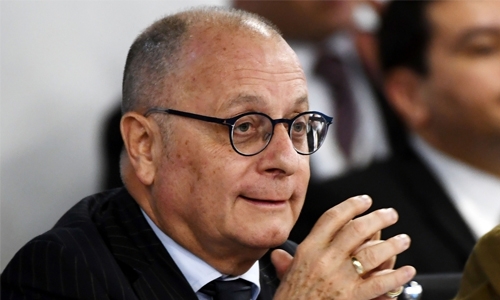Argentina wants Group of 20 to find path forward
With international tensions on trade set to come to a head at the Group of 20 summit, host Argentina is hoping to find agreement on improving global stability, even if deep disagreements remain. In an interview, Foreign Minister Jorge Faurie said the November 30-December 1 meeting in Buenos Aires should stress the importance of trade itself, at a time that the former consensus against protectionism breaks down.
“We are putting a focus on the situation of trade, just to make sure that it grows, that it is stable and that this vision is shared by the principal actors,” he said by telephone. “We have to encompass all the views to be able to find common ground for everyone,” he said. The United States and China, the world’s two largest economies, have an escalating trade war as US President Donald Trump vows to protect domestic industry as part of his “America First” philosophy. Trump has cast his G20 meeting with Chinese President Xi Jinping as a deadline for Beijing to lessen trade barriers or face even more intense pressure.
The Group of 20, a club formed a decade ago amid the economic crisis, accounts for 85 percent of global economic output. Faurie played down the importance of any final statement, quipping: “Sometimes we do such lengthy documents that people are a little bit lost in their reading.” But he said a draft proposal by Argentina, which was still being hammered out, was “reasonable” and would emphasize stability as part of a “rational and positive outlook” on trade.
Two other major summits this year, of the Group of Seven industrialized democracies and the Asia-Pacific Economic Cooperation forum, both ended without customary joint statements. Faurie said Argentina, an emerging economy and the first South American host of the G20, was in a position to offer a “fresh approach” to world leaders. Argentina is leading the G20 as its center-right president, Mauricio Macri, presses ahead with spending cuts as part of a $56 billion International Monetary Fund bailout.
The peso has lost nearly half of its value this year as Argentina copes with a yawning fiscal deficit and the effects of a severe drought. Faurie said the structural reforms, which have triggered boisterous street protests in Argentina, have gone in tandem with the G20 push for trade, which could help fill the coffers for emerging economies.
Related Posts

